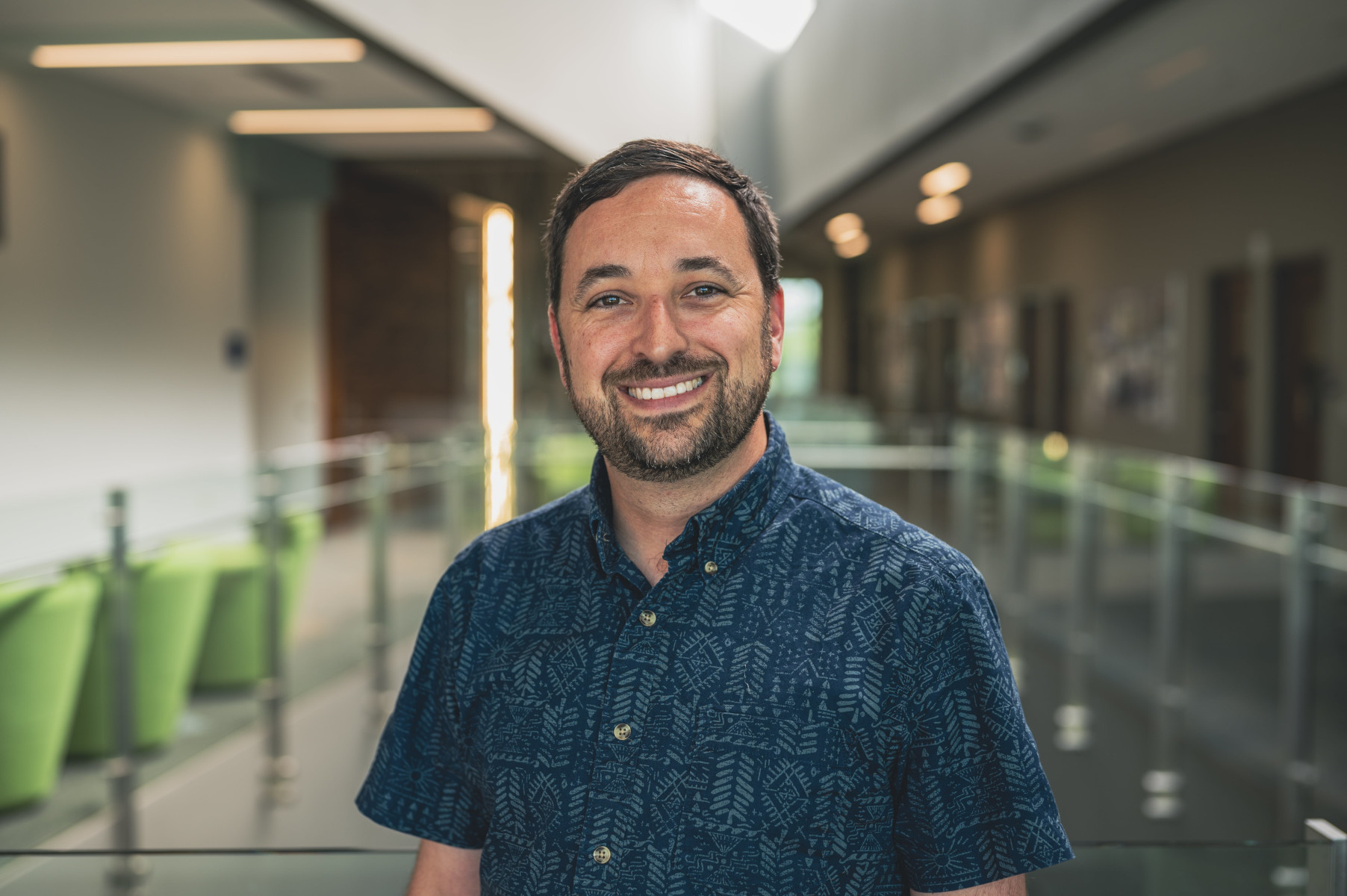Dean for Community Wellness at Moravian University in Bethlehem, PA
Greg Meyer, one of the Collaborative Center’s Founding Partners. Greg is the Dean for Community Wellness at Moravian University in Bethlehem, PA. In this role, Greg oversees the departments of Student Accountability & Conflict Transformation, chairs the Threat Assessment and Behavior Intervention Teams (for students and employees), and supervises the directors of the Counseling Center, the director of Disability & Accommodations, and the Health Center coordinator. Greg is also a member of the institution's Campus Climate Education Team and works collaboratively to support Mo's Cupboard, a resource pantry designed to meet students’ basic needs. Greg earned a B.A. in Music from Lehigh University and an M.Ed. in College Student Personnel Administration from James Madison University. Greg discusses how he has integrated restorative practices comprehensively into his numerous processes.
Q: What drew you to restorative practices?
A: I was initially exposed to restorative practices as part of my ongoing training and development in the field of student conduct. I remember using restorative questions in my conduct meetings and feeling that I was finally able to get students to reflect in ways that I’d always hoped they would but rarely did. The questions changed the dynamic and expanded the benefits I thought could be achieved through a conduct process. I also learned pretty quickly that restorative practices provided a way for me to work with students and address their needs in situations where harm had been caused but no policy had been violated. As a student conduct practitioner, this expansion of the work was really fulfilling.
More recently, I’ve been viewing restorative practices from a more holistic lens. I’m drawn to the focus on relationships and the creation and holding of space for people to share openly with one another about difficult and challenging topics. The application of RP in higher ed creates an environment where all members of the community can feel heard and understood.
Q: How do you integrate restorative practices into your work?
A: I have embraced restorative practices in a number of different components of my work. I create multiple opportunities for team members to share affect through check ins and the use of intentional discussion circles for a variety of purposes. I’ve integrated fair process into decision making that I am leading and have encouraged it from our leadership as well. We have created a workshop series for our community to be exposed to restorative principles and provide opportunities for participants to continue to engage and reflect on how they are implementing this in their work. When working with students or employees who are experiencing conflict, I have found it really helpful to explicitly share about the compass of shame to help them process through and understand the behaviors of all parties involved.
Q: How has working with restorative practices changed the way you approach your work?
A: Restorative practices has, over the years, found its way into almost everything I do. Having an understanding of shame responses has helped me find empathy for others and allowed me to depersonalize other people’s behaviors to avoid an unhelpful emotional reaction. The restorative questions, (particularly : “what has been the hardest thing for you?”) are a tool that helps me slow down my reactions and instead hold space for the expression of affect, ultimately leading to greater understanding. Using the concept of working “with” has led me to create more inclusive experiences where I am able to invite more voices in to share their ideas and perspectives.
Q: What impact do you think restorative practices can have on higher education?
A: I believe that the integration of restorative practices at all levels of higher education will be truly transformative. It will change the way we make decisions and how members of the community feel about those decisions. Focusing on relationships will lead to more effective collaboration. I truly believe we will see an increase in the overall wellness of our campus communities.
Q: What tips do you have for those looking to integrate restorative practices into their spaces?
A: I have learned that all the books and trainings alone are not enough to truly implement restorative practices in a sustained way. Things really changed for me when I applied the restorative window to myself by engaging with both high accountability and high support. My advice is to find yourself an accountability partner or group and create regular opportunities to share about how you are using restorative practices. Use this space to learn from one another’s challenges and successes. Commit to engaging with and reflecting upon all the components of RP on a regular basis. Start with yourself and start small, but keep going. Over time, your confidence will build and you will see the impact on the quality of your work and relationships.
